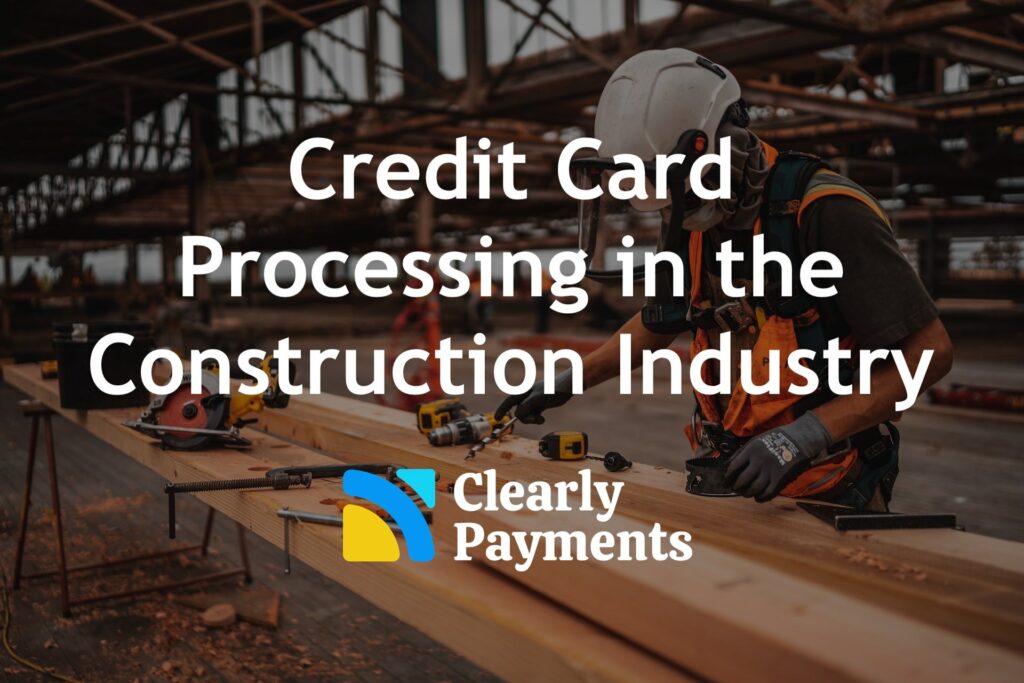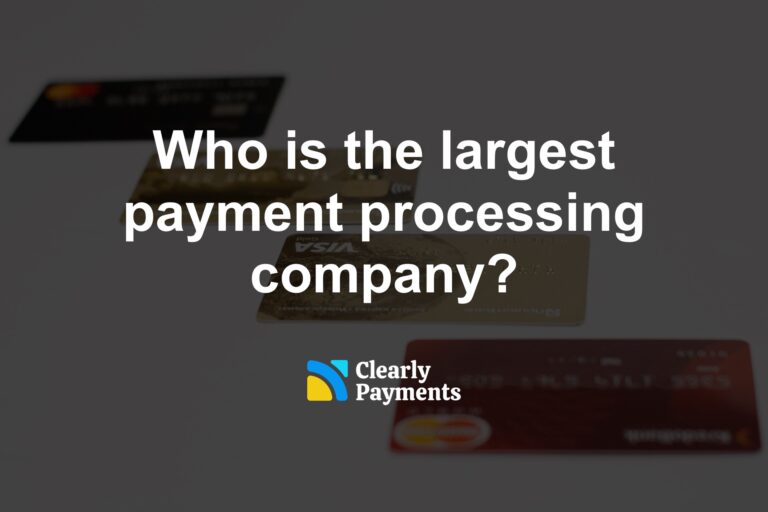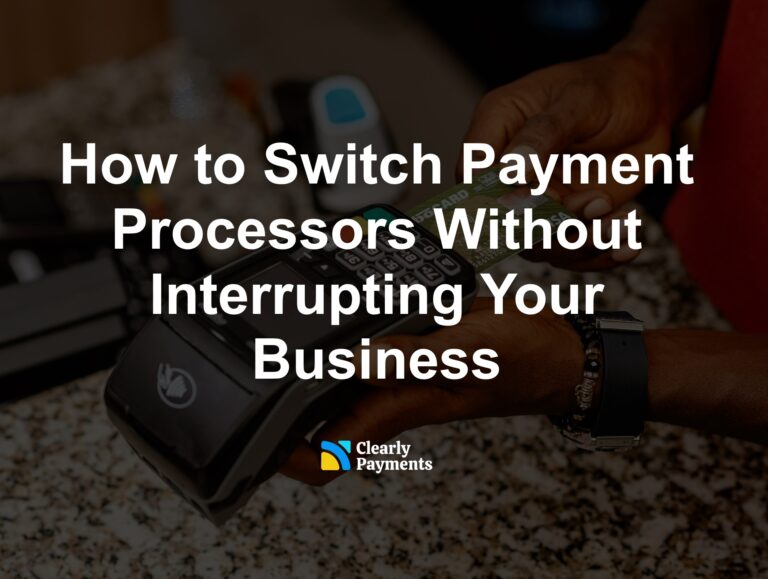The number of contractors, architects, builders, and others in the construction industry that use credit cards for payments has increased. It is an industry that, in the past, used a lot of checks and cash. Globally, cash and check use is declining at a significant rate, and the construction industry is part of that trend. There is a cost for a construction business to accept credit cards, but most have found that the cost is worth the benefits.
The construction industry in Canada has more than 1.4 million people and generates around $141 billion in sales which is about 7.5% of Canada’s economy, according to Canadian Construction Association. The move to digital payments by the construction industry is a big one.
Why has credit card use increased in construction?
The most common reason historically that the construction industry would not accept credit cards is because they want to save on fees. That’s understandable. Accepting credit cards means that the business has to pay merchant fees.
Many contractors used to only accept cash for work. One of the rarely talked about reasons for using cash is to reduce taxes that the contractor would pay. The world has become much more digital over the past 20 years and most modern construction companies think it’s not worth the risk and extra effort to be fully cash-based.
Today, the construction industry is moving digital. There are many reasons this is happening, but these are the top:
Buyers are asking to pay with credit cards: Digital has become the preferred way to pay for many people. You can see this in the global trends of declining cash use. COVID has made this trend move even faster. When your customers ask to pay with credit card, it becomes hard to avoid it. People generally like credit cards because it’s easy, convenient, and they get rewards.
Businesses get their cash faster with credit cards: Another reason contractors are moving to credit cards is they like the speed that money gets into their bank. After a swipe of a credit card, Clearly Payments moves your money into your account either the same day or the next day, most of the time. You don’t need to physically deposit cash or checks or wait days for a bank transfer when you use credit cards. Faster money means more cashflow for a construction business to operate.
It is easier accounting with credit cards: When everything is digital, accounting becomes easier and there are fewer manual errors. Making accounting easier is another top reason that the construction industry is moving to credit cards.
Common ways payments are accepted in construction
There are two common ways that the construction industry is actually accepting the credit cards. The first is a typical credit card machine and the second is a virtual terminal.
Credit Card Machines in the Construction Industry
A wireless credit card machine is the most popular way to accept payments in the construction industry. They are completely mobile with no wires needed for connection. The benefit of a credit card machine compared to a virtual terminal, described below, is that they also accept debit cards. Your customers can pay with any type of payment method, including credit card, gift card, debit, tap, and chip & PIN, which are considered the most secure ways to accept payments.
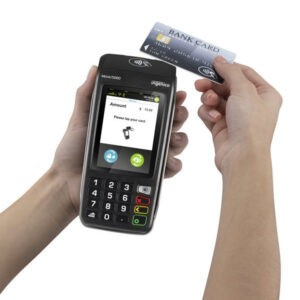 Credit card machines have been around since 1960. They started as credit card imprinters and moved to magnetic stripes in the 1970s. They’ve evolved significantly over the past 60+ years and have become very common and reliable for payments. Payment terminals are used by millions of businesses around the world.
Credit card machines have been around since 1960. They started as credit card imprinters and moved to magnetic stripes in the 1970s. They’ve evolved significantly over the past 60+ years and have become very common and reliable for payments. Payment terminals are used by millions of businesses around the world.
A very popular device is the Ingenico Move 5000 which provides complete mobility to take payments wherever your customers are. You can also get a version that is wired for your sales counter if you prefer. It has an ergonomic design and superior 4G wireless connection. The Ingenico Move 5000 supports all forms of payment processing including EMV chip & PIN, chip & sign, magstripe, signature capture, and NFC/contactless.
Virtual Terminals in the Construction Industry
A virtual terminal is a web-based application that allows a construction business owner to accept credit card payments using an internet browser on a computer, tablet, or mobile phone. Rather than being a hardware payment terminal or credit card machine, a virtual terminal is a web-based payment terminal.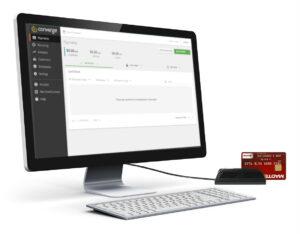
A virtual terminal makes it easy to take credit card payments over the phone or in person. They are very commonly used in office buildings, service businesses, and many other businesses that do not have long lineups of customers or hundreds of transactions per day.
The key benefit of a virtual terminal is the simplicity and speed to get up and running. You don’t need to deal with hardware or configuration. All you need is a merchant account then credentials to log into the virtual terminal. Once you have that, you can start processing.
Reducing merchant fees for construction
As a construction business owner, there is a fee you pay for the ability to accept credit cards. There is a fixed transaction fee that is generally between $0.05 and $0.40 per transaction and a percentage fee which ranges from 1.9% and 5%. That’s a big range, especially when you’re processing a lot. There are a few things you can do to reduce your credit card processing fees. You are in control. These steps will get you on the low end of the range.
One of the most tangible things you can do and start immediately is adapt how you accept credit cards. Online transactions are great and sometimes necessary, but they are considered higher risk so credit card brands (i.e. Visa and MasterCard) charge higher interchange fees. When possible, conduct credit card transactions with the card physically in front of you. You’ll end up reducing your credit card fees.
Another thing you can do is make sure you work with a payment processor that will use Interchange plus pricing. This is how Clearly Payments charges. Interchange plus is a pricing model that passes through the interchange rates and adds a mark-up. The payment processor has flexibility on what the mark-up is, but it is very transparent. This is one reason why interchange plus pricing is the recommended model by the Canadian Code of Conduct.
A third thing you can do is work with a payment processor that will set up your account as effectively as possible. Different business categories, or MCC codes, have different fees. Clearly Payments sets your business up that reduces your fees from the beginning.
Lastly, encouraging the use of debit cards is a great way to reduce cost. Debit card fees are much lower than credit card fees because they do not have the percentage portion of the fees.
Get the best credit card processing for the construction industry
- Lowest-cost processing in the industry
- Fund transfers in less than one day
- A full set of payment products to accept payment anytime, anywhere
- World-class customer service

